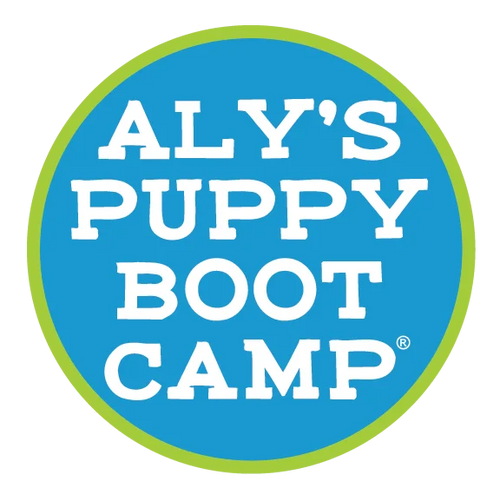The Best Age to Start Professional Dog Training: Early vs. Later Training
I get this question all the time: 'Aly, did I mess up by not starting training when my dog was a puppy?' Or on the flip side: 'Is my 8-week-old puppy too young to start learning?'
Here's the beautiful truth I've discovered after training thousands of dogs: the best time to start training is whenever you're ready to begin. Yes, there are sweet spots and advantages to different ages, but every dog, whether they're 8 weeks or 8 years old, can learn, grow, and transform with the right approach.
Let's talk about when to start, what each age brings to the table, and most importantly, how to set you and your dog up for success no matter where you're beginning this journey.
1. Starting Early: The Benefits of Puppy Training
Puppyhood is the ideal time to start training your dog. During this period, your puppy’s brain is rapidly developing, and they are most receptive to learning new behaviors. The early stages of life are when your dog learns the basics — like housebreaking, leash walking, and responding to commands. Training early also helps set the foundation for more advanced behaviors as your dog matures.
Early training with your puppy helps establish good habits from the start, making it easier to prevent behavioral problems down the road. It’s also during this period that socialization is key. Exposing your puppy to different people, environments, and situations during their critical socialization period (typically between 3-16 weeks) can help them grow into a well-adjusted dog.
At Aly’s Puppy Boot Camp, we specialize in early training to help your puppy become a calm, confident companion. Our programs ensure that your puppy gets the right start in life with the guidance of our professional trainers.
For tips on how to train your puppy at an early age, check out our blog How to Train Your Dog for a Happy and Obedient Life.
2. Later Training: How Adult Dogs Can Benefit from Professional Support
Let's bust a myth right now: 'old dogs can't learn new tricks' is complete nonsense. Some of my most rewarding training success stories have been with adult dogs who just needed someone to believe in them and meet them where they were.
Adult dogs actually bring some advantages to training, they're often more focused than puppies, they've developed their personality fully (so we know exactly what we're working with), and they're usually past the 'chew everything in sight' phase. Plus, the bond you build through training an adult dog? Pure magic.
At Aly’s Puppy Boot Camp, we offer tailored training programs for adult dogs, addressing everything from basic commands to more complex behavioral issues. Our in-person training ensures that your dog learns how to live harmoniously in your home, regardless of age.
3. The Importance of Consistency in Both Early and Later Training
Regardless of when you start, consistency is key to successful dog training. Whether you’re training a puppy or an adult dog, the most effective results come from consistent practice, clear communication, and positive reinforcement.
When training a puppy, consistency helps reinforce the behaviors you want to see while preventing bad habits from forming. With adult dogs, consistency is just as important in reinforcing new behaviors and addressing any existing problems. Regular, structured training sessions allow your dog to understand your expectations and strengthen the bond between you and your pet.
At Aly’s Puppy Boot Camp, we emphasize the importance of consistency in our training programs, ensuring that both you and your dog are on the same page throughout the training process.
4. Professional Guidance for Success at Any Age
While starting training at a young age provides a strong foundation, professional dog trainers can help at any stage of your dog’s life. Whether you’re dealing with puppyhood or working through behavioral issues in adult dogs, professional training provides the expertise and guidance needed to navigate challenges effectively.
At Aly’s Puppy Boot Camp, we offer a range of training programs, from early puppy training to advanced obedience and behavioral modification for adult dogs. With our expert trainers by your side, you can achieve long-term success, no matter your dog’s age.
For ongoing support and training resources, check out Aly’s Insider Community.
5. The Sweet Spot Strategy: Why 'When' Matters Less Than 'How'
Here's what I've learned: the families who succeed aren't necessarily the ones who started at the 'perfect' age, they're the ones who started with the right mindset, the right support, and a training approach that matched their dog's individual needs.
Whether you're starting with a 10-week-old puppy or a 10-year-old rescue, success comes from understanding your dog's unique personality and meeting them exactly where they are.
6. The Right Training Plan for Your Dog’s Right Now
Aly always says, “It’s never too early and never too late to start training your dog.” And it’s true—what matters most is starting with the right plan for where your dog is today.
Yes, early training gives puppies a strong foundation—but adult dogs? They can absolutely thrive with the right structure and support.
At Aly’s Puppy Boot Camp, we build custom training plans based on your dog’s age, personality, and real-life needs. Whether you’re working with your current companion or considering one of our Trained Dogs for Sale (who already have age-appropriate skills built in), our focus is always the same:
Help you and your dog succeed—right where you are.
Because great training isn’t about timing… it’s about taking the next right step, together.
Conclusion: It’s Never Too Early, Never Too Late
Here’s what I want you to remember—there’s no such thing as the “wrong” time to build a better relationship with your dog.
Whether you’re holding a wiggly 8-week-old puppy or walking an 8-year-old rescue with some life behind them, transformation can happen. When the training approach honors your dog’s personality, past, and current needs—it works.At Aly's Puppy Boot Camp, we don’t just train dogs. We study them, understand them, and create training plans that meet them exactly where they are. Because when you get the right dog, with the right approach, and the right support for your family—age truly is just a number.



